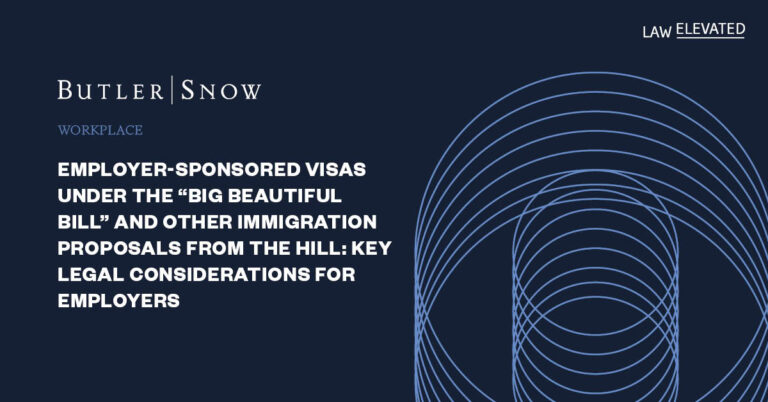As the “Big Beautiful Bill” takes effect and additional proposals are discussed in Congress, businesses that rely on foreign talent should pay close attention to immigration reforms. Employer-sponsored visas have long been a critical tool for companies seeking to fill specialized roles, but changes could be in the works that significantly alter the way employers recruit, sponsor, and retain international employees. For HR leaders, compliance officers, and in-house counsel, understanding the legal and operational implications of these reforms will be essential to avoiding costly missteps and ensuring workforce continuity.
In this post, we’ll examine enacted and proposed updates to employer-sponsored visas, highlight compliance considerations for businesses, and outline strategies companies can take now to prepare for a changing immigration landscape.
Key Changes to Employer-Sponsored Visas
While the Presidential Proclamation aimed at reforming the H-1B visa program has captured most of the headlines lately, the immigration changes under the “Big Beautiful Bill” are critical for employers but have not garnered as much attention. The Bill imposes new immigration fees, including a $250 “Visa Integrity Fee” when obtaining most nonimmigrant visas abroad through the Department of State. Additionally, the Bill provides major funding for immigration enforcement.
At the same time, lawmakers have considered modernizing the employer-sponsored visa system, particularly in programs such as the H-1B and L-1 nonimmigrant visa categories and the employment-based green card categories. One of the most notable proposed changes involves revised eligibility requirements, with stricter definitions of what constitutes a “specialty occupation” and higher wage thresholds for H-1B roles. The Bill also contemplates adjustments to visa caps and the possible redistribution of unused visas, which could shift opportunities across industries. Congress has also signaled interest in streamlining the visa application process through digital filings and reducing backlogs, while also enhancing oversight by expanding site visit authority and closely monitoring third-party placement arrangements. These changes promise efficiencies for some employers, but they could also increase costs and administrative responsibilities for others.
Potential Compliance Challenges
While the reforms are designed to improve certain aspects of the immigration process, they would also create new compliance challenges for employers. Businesses could expect heightened documentation requirements, particularly in proving prevailing wage compliance, job qualifications, and business necessity for H-1B sponsorships. Enforcement efforts are also likely to become stricter, with agencies imposing greater penalties for misclassification, errors, or perceived misuse of the work visa sponsorship system. In addition, expanded coordination among the Department of Labor, USCIS, and the Department of State could mean that even minor discrepancies in filings may trigger further scrutiny. Employers who fail to align their immigration practices with these evolving requirements risk audits, financial penalties, and reputational damage.
Workforce Planning Implications
Beyond compliance, the proposed reforms will inevitably influence workforce planning strategies. Even with promises of increased efficiency, many employers may face longer lead times to navigate additional procedural steps, making early planning for visa sponsorship essential. Companies that actively support employees through the immigration process may gain an edge in retaining foreign talent, particularly as employees weigh which organizations can offer the most stable pathway to permanent residency.
Additionally, industries such as technology, healthcare, and engineering—which have long relied on foreign workers—may likely see increased competition for limited visa slots, putting additional pressure on employers to differentiate themselves.
Preparing Your Business
To stay ahead of these potential shifts, employers should take proactive steps now. Conducting audits of existing sponsorship programs and ensuring compliance with wage and recordkeeping obligations will provide a solid foundation. Businesses should also establish strong coordination between HR, legal, and compliance functions to monitor regulatory developments and adapt policies quickly. Above all, employers that partner with experienced immigration counsel will be best positioned to anticipate challenges, minimize risk, and respond strategically as the reforms take shape.
Conclusion
Employer-sponsored visas will remain part of the U.S. labor market, but the “Big Beautiful Bill” could signal Congress’s potential to reshape how businesses navigate this process. By understanding the proposed reforms and strengthening compliance systems now, employers can minimize risk while maintaining access to the global talent necessary for growth.
Our team is monitoring these developments closely and advising clients on strategies to stay compliant and competitive. If your business relies on employer-sponsored visas, now is the time to assess your policies and prepare for the road ahead.
